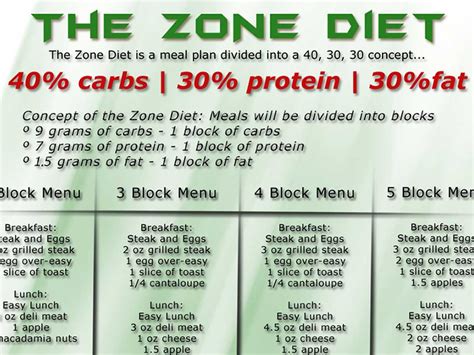Learn about kidney function, diet’s impact, components of a kidney-friendly diet, foods to avoid, and the importance of hydration for optimal kidney health. Improve your kidney health today!
Understanding Kidney Function
Contents
Understanding kidney function is essential for maintaining overall health. The kidneys are vital organs responsible for filtering waste products and excess fluids from the blood, producing urine, regulating blood pressure, and balancing electrolytes in the body. They also play a crucial role in controlling red blood cell production and promoting bone health. In addition, the kidneys help to regulate acid-base balance and eliminate toxins from the body.
Healthy kidney function is crucial for maintaining homeostasis within the body. Kidneys filter approximately 120 to 150 quarts of blood each day to produce about 1 to 2 quarts of urine, which helps to eliminate waste and maintain proper fluid balance. When the kidneys malfunction, waste and toxins can build up in the body, leading to various health complications.
Chronic kidney disease (CKD) is a common condition that affects the function of the kidneys over time. This condition can result from various factors such as high blood pressure, diabetes, and other underlying health issues. Understanding the risk factors and symptoms of CKD is important for early detection and intervention to prevent further kidney damage.
In conclusion, a comprehensive understanding of kidney function is crucial for maintaining overall health and well-being. By recognizing the importance of the kidneys in filtering waste, regulating fluid balance, and supporting various bodily functions, individuals can take proactive steps to promote kidney health through lifestyle modifications and proper medical care.
Impact of Diet on Kidney Health
When it comes to maintaining healthy kidney function, the impact of diet on kidney health cannot be overstated. A well-balanced diet plays a crucial role in supporting kidney function and preventing the development of chronic kidney disease. Proper nutrition can help to reduce the risk of kidney stones, kidney damage, and other kidney-related complications.
A kidney-friendly diet typically includes a variety of nutritious foods that are low in sodium, phosphorus, and potassium. Incorporating plenty of fruits, vegetables, whole grains, and lean proteins can help to maintain healthy kidney function and prevent the progression of kidney disease. It’s important to limit the intake of processed foods, high-sodium items, and sugary beverages, as these can have a detrimental effect on kidney health.
One of the key components of a nutritious diet for kidney health is staying hydrated. Adequate fluid intake is essential for supporting kidney function and preventing dehydration, which can lead to kidney damage. Drinking plenty of water and avoiding excessive consumption of caffeinated or alcoholic beverages can help to maintain proper hydration levels and support overall kidney health.
Furthermore, it’s important to be mindful of the foods to avoid for kidney health, such as those high in sodium, phosphorus, and potassium. These include processed meats, canned soups, dairy products, and certain fruits and vegetables. By following a balanced and kidney-friendly diet, individuals can help to protect their kidneys and reduce the risk of developing kidney-related complications.
Components of a Kidney-Friendly Diet
A kidney-friendly diet is crucial for managing kidney disease and maintaining overall health. There are several components to consider when planning a diet that supports kidney function. One important aspect is to monitor protein intake. Consuming too much protein can put strain on the kidneys, so it’s essential to control the amount of protein consumed. Another key component is limiting sodium intake. High levels of sodium can lead to high blood pressure and fluid retention, which can be detrimental to kidney health.
Additionally, it’s important to focus on nutritious foods that are low in phosphorus and potassium. These minerals can build up in the body when kidney function is compromised, so it’s important to choose foods that are lower in these nutrients. Hydration is also a vital component of a kidney-friendly diet. Drinking enough water helps the kidneys flush out toxins and maintain proper function.
When planning meals, it’s important to limit foods high in phosphorus and potassium. This includes items like bananas, oranges, dairy products, and whole grains. It’s also important to read food labels to check for hidden sources of these minerals. Additionally, portion control is key in managing a kidney-friendly diet. Consuming excessive portions of food can strain the kidneys and lead to complications.
Lastly, it’s important to consult with a healthcare professional or dietitian to create a customized kidney-friendly diet plan. Everyone’s dietary needs are different, especially when managing kidney disease, so it’s essential to seek personalized guidance.
Foods to Avoid for Kidney Health
What is Healthy Kidney Diet?
When it comes to maintaining kidney health, it is important to pay attention to the foods you consume. There are certain foods that can be harmful to the kidneys and should be avoided for overall well-being.
One of the main components to avoid in a kidney-friendly diet is sodium. Consuming high levels of sodium can increase blood pressure, putting extra strain on the kidneys. This can ultimately lead to kidney damage and other health issues. Processed and packaged foods, as well as fast food, are often high in sodium and should be limited or avoided.
Phosphorus is another important consideration when it comes to kidney health. Foods high in phosphorus, such as dairy products, whole grains, and nuts, can be difficult for the kidneys to process. When the kidneys are not functioning at their best, excess phosphorus can build up in the body and lead to complications.
Potassium is also a key nutrient to monitor in a kidney-friendly diet. While potassium is essential for overall health, too much can be harmful for individuals with kidney disease. Foods that are high in potassium, such as bananas, oranges, and potatoes, should be consumed in moderation.
Protein is an important part of a healthy diet, but excessive amounts can be harmful to the kidneys. When the body metabolizes protein, it produces waste that the kidneys must filter. Consuming too much protein can put a strain on the kidneys, so it’s important to consume it in moderation.
Importance of Hydration for Kidney Function
Hydration is essential for maintaining healthy kidney function. The kidneys rely on an adequate intake of water to help flush out toxins and waste products from the body. When the body is dehydrated, the kidneys are unable to function properly, leading to a buildup of these harmful substances. Therefore, it is crucial to drink enough water throughout the day to support optimal kidney function.
Dehydration can also lead to the formation of kidney stones, as the lack of water can cause certain minerals and salts to crystallize and accumulate in the kidneys. This can be extremely painful and may require medical intervention to remove the stones. By staying well-hydrated, you can help prevent the formation of these painful stones and support overall kidney health.
Furthermore, adequate hydration can help regulate blood pressure, which is crucial for kidney function. When the body is dehydrated, the blood becomes thicker and more difficult to pump through the body, leading to increased blood pressure. Over time, this can put a strain on the kidneys and contribute to kidney disease. By staying properly hydrated, you can help maintain a healthy blood pressure and reduce the risk of kidney damage.
In addition to water, certain fluids such as herbal teas and pure fruit juices can contribute to your daily hydration needs. However, it is important to limit or avoid sugary and caffeinated beverages, as these can actually dehydrate the body. To support optimal kidney health, aim to consume at least 8-10 cups of water or fluids per day, and adjust this amount based on your activity level and the climate you live in.














